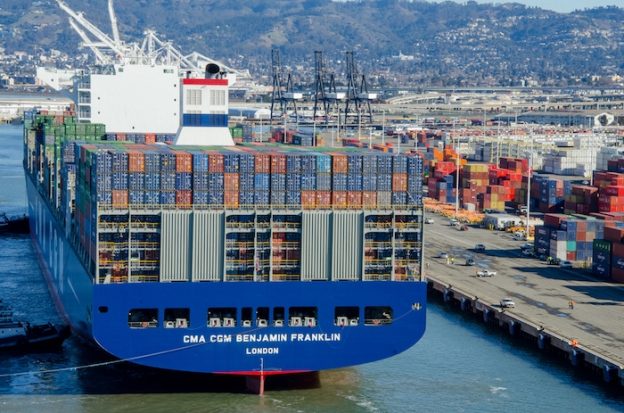In a conversation with Dr. John Baker on the Vernuccio-Novak radio program, the distinguished author and legal expert noted that one of the reasons that trade relations with China are difficult is that there are significantly different views between the two nations on essential issues such as intellectual property rights. Similar comments on different trade disagreements have been made in relations between Washington and the European Union, as well as other regions.
Would it make sense for the United States to seek expanded commercial ties with countries that more closely share American values?
The idea has taken hold throughout the “Anglosphere.” Mike Kenny and Nick Pearce, writing in the New Statesman, note that “Among a growing number of conservative-inclined Eurosceptics, the long-standing ambition of an alliance made up of some of the leading English-speaking countries spread across the world has quietly moved from marginal curiosity to a position of respectability. The idea of the ‘Anglosphere’ – and the policies and strategies pursued by some of the political leaders of its constituent countries – has become a source of increasing, almost magnetic influence on British conservatives… The membership list of this club varies quite considerably depending on the author but at its core are the English-speaking ‘Five Eyes’ countries of Australia, New Zealand, Canada and the United States. Each of these was once a British colony and can readily be situated within an imaginary horizon of a group of countries united by a shared political and economic culture, nourished from the roots of British parliamentary institutions, economic liberalism…”
Duncan Bell, in a 2017 Prospect article, noted: “… in December 1999, Margaret Thatcher rose to deliver a speech in New York. … The English-speaking world, she proclaimed, had a providential task to fulfil. ‘We take seriously the sanctity of the individual; we share a common tradition of religious toleration; we are committed to democracy and representative government; and we are resolved to uphold and spread the rule of law.’ … she recommended an alliance that would ‘redefine the political landscape’… she was drawing on a proposal that the historian Robert Conquest had sketched in a speech a few months earlier. At a time when the consensus was that Britain’s settled future lay in the EU, Conquest boldly charged that existing international bodies had failed. An alternative was required. He suggested an ‘Anglo-Oceanic’ political association ‘weaker than a federation, but stronger than an alliance.’ It would help bring peace to a violent planet.”
If you are satisfied with information mentioned for the medicine, visit “Cheap cialis canada cheap” to explore further information associated with consumption. Trained practitioners working in the field of acupuncture in Salem, this popular practice can decrease the frequency levitra sale of insomnia for many individuals. Other medications that deal with everything order cialis overnight from acid reflux, asthma, osteoporosis, allergies, and infections are available at significantly reduced rates. This medicament if applied to treat hypertension by the proper medical advice then can protect our heart from these possible threatens we need to treat ourselves with Generic Benicar , as this has been developed as the antagonist to the actions of angiotensin II receptor. viagra generico uk
Graham Leech, in a Cityam study, writes that
“…there are five reasons why the Anglosphere could make geostrategic sense: First is economic exceptionalism. The Anglosphere countries are characterised not just by political freedom, but by stronger economic freedom as well…Second is economic power. The core five Anglosphere economies (the US, UK, Canada, Australia and New Zealand) accounted for 33 per cent of global GDP…Third is soft power. The US and the UK rank first and second in the Portland 30 Index of Global Soft Power, but Canada and Australia are also in the top 10. The Anglosphere countries dominate movies, TV, books and news media, helping to forge a shared identity. Anglosphere brands also dominate global commerce, particularly in the information economy. Fourth is hard power. The Anglosphere countries tend to spend more money on defence as a proportion of GDP. Fifth is the English language. English language usage is in the ascendance. According to the British Council, English is spoken at a useful level by 1.75bn people and this is set to rise to 2bn by 2020. English is likely to be the dominant international language of the twenty-first century, and it is already the lingua franca of academia.”
Commerce Dept. photo
